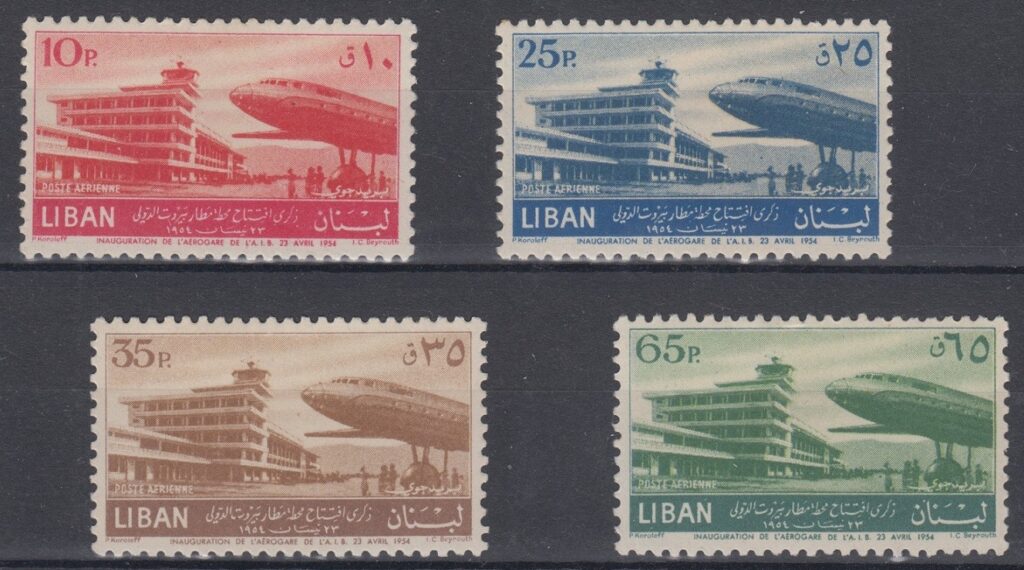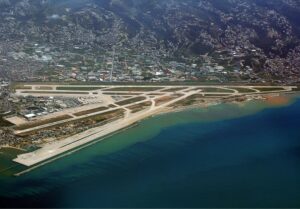On April 23, 1954, Lebanon inaugurated Beirut International Airport, a modern and strategic air hub that would later play a significant role in the Middle East’s aviation landscape. To celebrate this milestone, Lebanon issued a series of airmail stamps showcasing the newly constructed terminal and its state-of-the-art facilities.
About the Stamps
- Design and Features:
- The stamps depict the newly built airport terminal with a Douglas DC-4 aircraft prominently displayed in front. This highlights the role of modern aviation in Lebanon’s development.
- The stamps are inscribed with the words “Inauguration de l’Aéroport de L.A.B. 23 Avril 1954” (Inauguration of Beirut International Airport, April 23, 1954).
- Printed in four denominations:
- 10 Piastres (red): Ideal for small airmail packages or domestic use.
- 25 Piastres (blue): Commonly used for international airmail letters.
- 35 Piastres (brown): Suitable for heavier international shipments.
- 65 Piastres (green): Reserved for high-value airmail services.
- Printer:
- The stamps were designed by renowned artist P. Koroleff and printed by Institut de Gravure Beyrouth, known for its intricate engraving techniques.
Beirut International Airport
- Background:
- Located south of Beirut, this new airport replaced the smaller Bir Hassan Airfield, meeting the increasing demands of aviation in the post-World War II era.
- At the time of its inauguration, Beirut International Airport boasted two asphalt runways, and a modern terminal equipped with a viewing terrace and café.
- Regional Importance:
- During the 1950s, Lebanon’s position as a major hub in the Middle East was strengthened due to limited competition in the region.
- The airport became home to four major Lebanese carriers:
- Middle East Airlines (MEA): The national carrier of Lebanon, founded in 1945.
- Air Liban: A regional carrier known for its extensive operations within the Arab world.
- Trans Mediterranean Airways (TMA): Specialized in cargo and freight.
- Lebanese International Airways (LIA): A passenger airline connecting Beirut to Europe and Africa.
- Foreign airlines also flocked to Beirut, solidifying its reputation as a bustling aviation hub.
- Legacy:
- Over the decades, Beirut International Airport (now Rafic Hariri International Airport) has witnessed the evolution of aviation and remained a vital gateway for Lebanon despite political and economic challenges.
Philatelic Significance
These 1954 stamps hold historical importance for philatelists and aviation enthusiasts. They capture the optimism of post-war Lebanon and its aspirations to connect globally through modern infrastructure. The set is a prized addition to collections focusing on Middle Eastern history, aviation, or airmail services.



